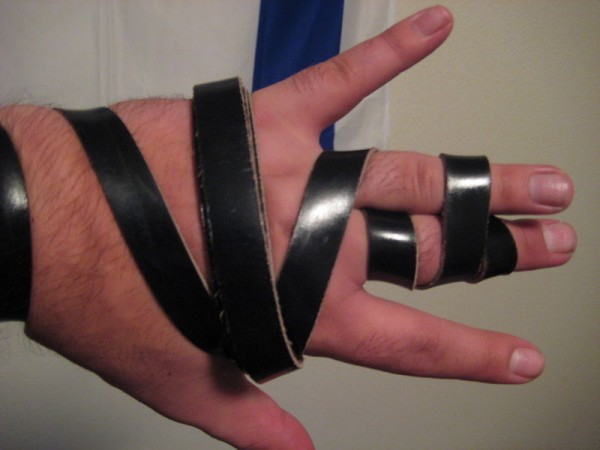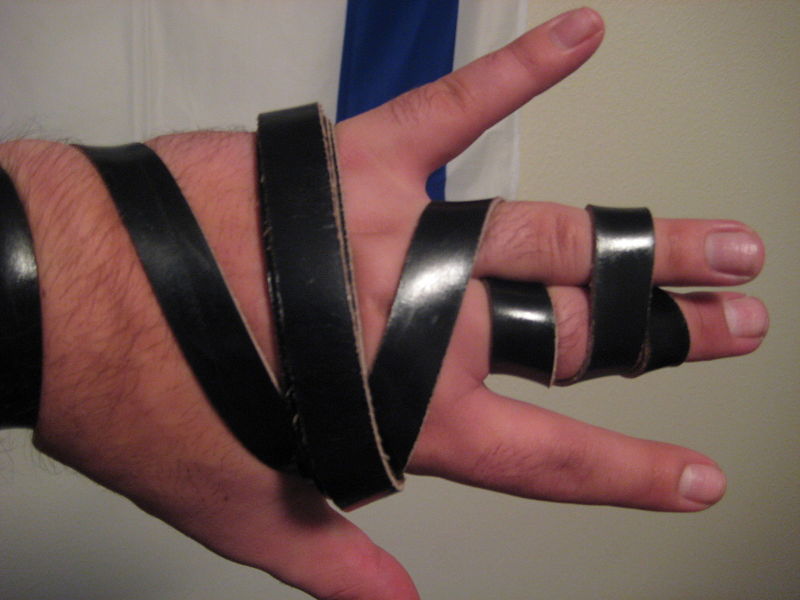
When I first started to attend a local Orthodox shul, I approached with what could be considered a strong level of trepidation. I grew up mainly Conservative, and considered myself as falling somewhere between the lines of Conservative and Reform. When I thought of Orthodoxy, I thought of my Pop’s narrow-minded uncle who never struck me as a particularly good person. Orthodoxy, in my mind, has always felt like the big bad wolf. So, when my Torah withdrawal after spending a year at the Pardes Institute of Jewish Studies started to really hit me and I found myself attending a very traditional shul for weekly study sessions, I was shocked to find that it was not nearly as intimidating as I expected. Really, I felt quite comfortable there. Still, when I was invited by Rabbi Miller of Torah Links to attend a week-long fellowship in Lakewood, New Jersey—the holiest city in Judaism according to a friend of mine—I had a reaction that was a mix of complete opposites: First, I jumped on the chance to go learn more Torah. After spending a year studying at Pardes, coming home to Cherry Hill, N.J. left me badly in need of some study time, and this seemed like the perfect cure, or at least something to curb the withdrawal symptoms a bit. Yet, as I learned more about the program and my time to leave drew near, I could feel that old fear rising again. I would have to spend a week living in the homes of extremely observant Orthodox Jews, experiencing the way they lived. I was definitely a bit nervous, I think my parents might have been more scared, but I went along with it and joined the Lakewood Fellowship.
I definitely don’t regret going, as it really gave me an opportunity to sink back into Torah study. On the Fellowship, I spent time studying with a hevruta, or learning partner, something I really missed from Israel. Each night, over epic meals, we had the honor of hearing some major speakers. I don’t know for sure, but I think these names are a bit of a big deal in the Orthodox world. We had people like Dr. David Lieberman, and Rabbi Sholom Kamenestky. As someone who has had experience studying Torah in-depth in the past, I will say a lot of what they taught was not new to me. One-on-one, I think many there understood that I was not ignorant of Judaism, but during group lessons, it did feel a little basic. However, I will say that the passion of the speakers, and their love for Judaism was definitely inspiring.
What I think I learned the most while in Lakewood wasn’t specifically Torah (though everything is Torah in some way). What I learned was that those people who have always intimidated me are actually good people. The residents of Lakewood opened their homes to us, and I never once felt uncomfortable. I always thought Orthodox people had to be a bit crazy—the family I stayed with had eight kids ranging from ages of two to fourteen— but they really aren’t. I enjoyed spending time with the kids and I could tell that the mother and father both saw each as a blessing and loved that they had a house full of so much energy. Once someone gets to know the family, the only person that could think they were out of their minds was their poor daughter with seven brothers.
Regarding their religious beliefs: Yes, they are fundamentalists, but, learning more about their world, I’ve begun to realize that “fundamentalist” doesn’t necessarily have to be a curse word. The rabbis I spoke with—and a ton of them took time to speak with me personally—were really intelligent, logical people. Their belief isn’t a wild magical belief that makes absolutely no sense, nor do they deny the truths of science. They happen to have a more stringent interpretation of the text and Jewish law. That’s really it. Do I agree with them that such a lifestyle is necessary, or even that this the correct way to be a good religious Jew? No, not particularly, but I can respect them for it. Actually, many of them seemed to agree with me, it isn’t all necessary. You don’t have to wear a white shirt and black suit to be a good Jew even in their eyes, which meant I didn’t need to feel awkward when I entered the yeshiva and was one of the only men wearing a blue striped shirt (though I still did of course).
Don’t get me wrong. I think they all actually would like to see me start wearing a black suit and white shirt. These sort of programs don’t just exist as a way to teach a little Torah and get us to be more accepting of their lifestyle—that is a goal, but there is a further agenda too. Torah Links is a kiruv organization, meaning they are Orthodox outreach, and their goal is to “convert” people into Baalei Teshuvot, secular Jews who have “returned” and become more religious. I used to think “kiruv” was a curse word, just like “fundamentalist,” and though the way I just defined it sort of makes it sound like one, since going to Lakewood, I’ve realized that it’s really not such a bad thing. Even when Christians try to convert me I’ve always turned them down and thanked them for their concern for my eternal soul. (It happens a lot, apparently being a religious Jew translates to “convert this guy, he’d be an awesome Christian!” in their minds.) Yet when other Jews have tried to push me toward being more religious, I always felt like I was being pushed against a wall, and became very defensive. But as long as they aren’t aggressive and insulting—and most of them aren’t— there’s no reason my response should be either. Lakewood taught me that those who work in kiruv are just Jews who want to share their love of Torah with me, in the hopes that I might embrace it myself.
So how do you go to one of these programs and not walk out wearing a black hat and suit, yet still manage to gain something from the experience? A key is to have a healthy level of self-confidence. If you go in with no confidence in the way you live your life, convinced that your beliefs and your Judaism is wrong or inferior to theirs, guess what? You’ll likely suck up everything they say, leaving no room for your ability to think a bit for yourself. I’m not saying it’s wrong to believe what they say, but to become an open receptacle is to deny yourself the opportunity to make your own decisions. But the opposite is true too, and I saw this among a few participants— if you go into the program with no openness, completely closed to the idea of changing your life, while you might gain some knowledge, you won’t walk out of the program having truly grown. You can’t go into these programs just wanting to study for the sake of studying, you need to want to learn.
This is really true of any program, from Reform to Haredi: Don’t think that what you’re experiencing is the only viable authentic form of Judaism or the only way you can fit Judaism into your life. While I was working at a Reform camp this past summer, I heard constantly about the merits of being a Reform Jew. (Never once did I hear about being just a Jew… but that’s a different story) The kids and the counselors who grew up there all think that they are right and that this is what being Jewish is all about. The people in Lakewood and other kiruv programs feel the same way. You need to be aware that this is what being a Jew is about, but so is that. If you don’t, the conclusion will really be the same—without confidence in yourself, you’ll just be a receptacle for the ideas of others.
Some other words of advice: Think with your brain, not your stomach. No matter what the program, they will give you good food, and you’ll likely gain 10 pounds by the end of it. Don’t give into your yetzer hara, evil inclination, by drinking too much high quality whiskey during the Friday night Kiddush or you’ll miss out on the Shabbat morning Kiddush with even more whiskey. Also, don’t be the guy that mixes Coke with an 18-year-old Glenlivet— it is a desecration and I will never forgive the iniquity. Be prepared to sing and dance—we had a concert with a great Israeli singer, Yehuda Green. Have fun, that’s part of the program. You get to see what it’s like in their world, how you can be an ultra-Orthodox Jew and still have some kosher fun. Just remember while you’re having fun, or after really, that half the fun and half of what you’re seeing is partly just show meant to get you to want to adopt this lifestyle.
I’m really not trying to scare you away though, I honestly think that anyone who has a chance to go on a program like the Lakewood Fellowship absolutely must do it. So long as you put your head on straight before going, it can be an amazing experience that can truly enrich your life. I can say for sure that I have grown since going to Lakewood. Since coming home, I have only turned my TV on once to watch with a friend, choosing to instead write and study Judaism in my free time, while also trying to get to shul so I can daven with a minyan three times a day. Am I going to become Orthodox because I went on the program? I highly doubt it, though I definitely see myself being more observant now. Thanks to my time with the Lakewood Fellowship, my passion for Torah study, which I think has always burned bright, is once again a blazing fire.
David Gutbezahl is a recent graduate of Ramapo College.

